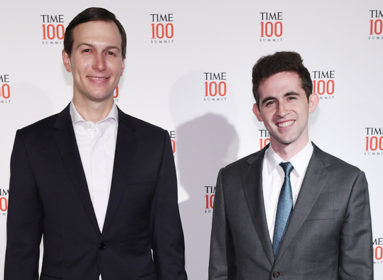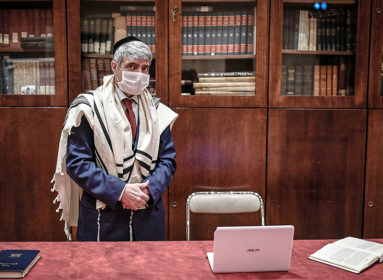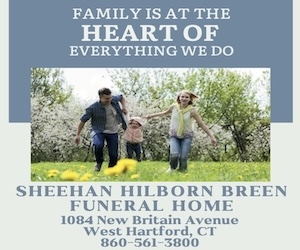
Connecticut welcomes new Jewish rabbis and cantors
By Cindy Mindell
Every summer, Jewish congregations throughout the state welcome new rabbis and cantors to their staff. Here is the most recent cohort, who bring diverse backgrounds, spiritual paths, and special skills to their sacred vocations.
 Rabbi David S. Barnett, D.C.
Rabbi David S. Barnett, D.C.
Congregation Rodeph Sholom, Bridgeport
Originally from Seattle, Washington, David Barnett was raised in the Reform movement, at Temple de Hirsch, and then at Herzl-Ner Tamid Conservative Congregation. While a student at the University of Washington, he developed a relationship with Rabbi Moshe Pomerantz of Herzl-Ner Tamid, which led to an interest in more traditional Judaism.
After earning his BA, Barnett spent six months on Kibbutz Netzer Sereni and at an ulpan, attaining basic fluency in Hebrew. He then decided to pursue the rabbinate, and was in the first class of students at the Midreshet Jerusalem program at Neve Schechter, under the auspices of the Jewish Theological Seminary (JTS). While there, he applied to the JTS rabbinical program. Barnett spent his first two years in Los Angeles at the University of Judaism (now American Jewish University), where he earned a Bachelor of Hebrew Letters. He also studied under Allan Michelson z”l, a preeminent West Coast cantor, and then completed his rabbinic studies at JTS in New York. Barnett was ordained in 1986.
He served for two years as assistant rabbi at Har Zion Temple in Penn Valley, Pennsylvania, before relocating to southern California in 1988. Over the next 25 years, Barnett worked at numerous Jewish congregations and officiated at funerals in conjunction with several prominent Jewish mortuaries. “Through that work, I found tremendous meaning in helping people transition from the shock of immediate loss to the process of honoring their loved ones who had passed and finding meaning throughout the process,” he says.
In 2011, Barnett was offered an interim-rabbi position in Virginia Beach, which led to two more interim positions – Temple Beth-El in Poughkeepsie, and Huntington (N.Y.) Jewish Center.
Barnett is an accomplished musician who studied both violin and classical guitar for many years. Barnett finds “great joy and meaning in sharing all of my developed talents and skills with each congregation I serve. I hope at some point to share some of my musical passions with the Rodeph Sholom community.”
 Cantor Kathy J. Barr
Cantor Kathy J. Barr
Greenwich Reform Synagogue
Raised in a Reform home in Manhattan, Cantor Kathy Barr has always been involved in social action. As a teen, she was active in Camp Shalom, a day camp for kids living in the Lincoln Square Projects, sponsored by two Manhattan Upper West Side congregations. She also counseled runaways, finding them places to stay and facilitating a dialogue between them and their parents.
A performer since age seven, Barr was active in regional opera and oratorio as well as in liturgical music, and performed as soloist both at home and abroad. She has recorded for Vox Turnabout, Centaur, Sine Qua Non, Not Nice Music, and the Book of the Month Records.
After earning her BA from New York University in Philosophy with minors in Hebrew and Mathematics, Barr plunged headlong into dual careers of singing and advertising, eventually melding the two into her own business of concert promotion and choral contracting.
In the late ’80s, while working as a cantorial soloist at Central Synagogue in Manhattan, Barr was encouraged by colleagues Rabbi Malcolm Stern z”l and Cantor Dick Botton to enter the cantorate. But it was at the Church of St. Ignatius Loyola, where Barr also worked, that she had her real epiphany. “I was in front of the congregation, leading a psalm, and I realized that I was furthering their prayer with my voice,” she recalls. “I suddenly understood that that’s what I had to do, but not there.”
In 1992, Barr was accepted into the first class of the new cantorial program at the Academy for Jewish Religion in Yonkers, where, she says, “I fell in love with Judaism.” She was ordained as a cantor in 1996.
Prior to joining Greenwich Reform Synagogue as part-time cantor and educator, Barr served at several congregations, including Temple Beth Sholom in Flushing, New York, the Village Temple in Manhattan, North Shore Synagogue in Syosset, Long Island, and West End Synagogue in Manhattan. She also officiates at lifecycle events and trains b’nai-mitzvah.
Cantor Barr is married to Ed Weissman, and has two grown daughters, Sara and Nora Fantry.
 Cantor Sarah Bolts
Cantor Sarah Bolts
Beth Sholom B’nai Israel, Manchester
A native of Miami Beach, Florida, Cantor Sarah Bolts is serving both as Beth Sholom B’nai Israel’s cantor and education director. A graduate of Smith College, where she majored in English, she was ordained as a cantor in June 2016 at Hebrew College in Newton, Massachusetts.
“Becoming a cantor wasn’t in my original plan,” says Cantor Bolts, who began her professional career in book publishing. “But after working in that field for a while, I realized that I’ve always been drawn to Jewish music and communal leadership, and that becoming a cantor would enable me to turn those lifetime passions into the work I do every day,” she says. “And the longer I work as a cantor, the more certain I become that this is where I’m meant to be.”
Cantor Bolts served as cantorial intern at Congregation Beth El of Montgomery County in Bethesda, Maryland from 2015-16, and at Shir Hadash Reconstructionist Havurah in Newton from 2014-15. She has served as cantorial soloist, professional Torah reader, and ba’alat t’fillah at numerous other communities in Massachusetts including Temple Emeth in Chestnut Hill, the Vilna Shul in downtown Boston, MIT Hillel, and Smith College.
From 2009 to this year, Cantor Bolts was an active member and leader at Moishe Kavod House in Boston, a social justice-oriented community for Jewish young adults.
Cantor Bolts calls herself “a huge sci-fi and fantasy geek.”
“Ask me anything about Harry Potter, Lord of the Rings, Doctor Who, etc.,” she says. “Chances are I’ll know the answer!”
 Rabbi Micah Ellenson
Rabbi Micah Ellenson
Temple Beth David, Cheshire
Rabbi Micah Ellenson grew up in Los Angeles along with his wife, Sara. They are parents to seven-year-old Lily and two-year-old Rose. He graduated with a BA in Psychology from the University of Southern California before enrolling at the American Jewish University, where he earned a Master’s in Education. In Los Angeles, he worked as a teacher and basketball coach at Milken Community High School and as director of youth activities at Stephen S. Wise Temple.
“For me, the decision to become a rabbi was not a quick or obvious one,” Ellenson says. “In my 20s, I went down a lot of different paths – from being a teacher and coach to getting my masters in education to working in entertainment. However, throughout it all, I kept being drawn back to Judaism. My love of text and community were constantly pulling me towards the rabbinate. Finally, at age 30, I decided to follow my true passion for learning, spirituality, and helping others and I decided to become a rabbi.”
Ellenson was ordained at Hebrew Union College in 2014. Since then, he has served as director of Congregational Learning at Temple de Hirsch Sinai in Seattle.
“Rabbi Micah” sees his primary role as a marbitz Torah – one whose job is to spread Torah. “I want to help people find a path through the Jewish community to develop their individual ‘spark’ through spiritual, educational, and community-building opportunities,” he says. “My hope is to engage congregants to grow, to ‘notice’ and to ‘acknowledge’ both that which is special and holy in themselves and in others.”
Aside from his family and Judaism, Ellenson’s passions include history, literature, film, music, and sports, as well as playing video games and reading comic books.
 Rabbi Jordie Gerson
Rabbi Jordie Gerson
Greenwich Reform Synagogue
Rabbi Jordie Gerson grew up in Oak Park, Illinois, where her father served for 30 years as rabbi of Oak Park Temple, a Reform congregation. After completing her undergraduate degree at Bates College, she moved to Colorado for a few years, roughing it in a log cabin and teaching rock-climbing and environmental education.
With an eye toward academia, Gerson earned a master’s degree in Christianity and Islam at Harvard, and considered a PhD in religious studies or rabbinical school. After her first year at Harvard, she spent the summer in the Clinical Pastoral Education program at Massachusetts General Hospital, training as a hospital chaplain. “I was totally overwhelmed with how meaningful and beautiful the work was,” Gerson says. “I decided to apply to rabbinical school because I thought there was no way to do work that was more meaningful.”
As a student at Hebrew Union College-Jewish Institute of Religion, Gerson spent a year in Jerusalem and then four years in Manhattan, where she served as the Reform rabbinic intern at New York University for two years, and at Congregation Rodeph Sholom for one year. After ordination in 2009, she was assistant director and campus rabbi at University of Vermont Hillel, commuting to Montreal several times a week to serve as visiting rabbinic associate at Temple Emanu-el Beth Sholom. She spent two years as associate rabbi and senior Jewish fellow at the Slifka Center for Jewish Life at Yale before serving as assistant rabbi at Congregation Beth Israel in San Diego and then a staff member at Adventure Rabbi in Boulder, Colorado.
Gerson’s writing is regularly featured in The Forward, Huffington Post, the Harvard Divinity Bulletin, and on the websites MyJewishLearning.com and Jewcy.com. Her favorite activities include skiing, surfing, running, rock-climbing, travel, meditation, and yoga.
“I’ve always felt very spiritually connected outside,” Gerson says. “I’m a surfer and a skier and that tends to surprise people because they might not think of a female rabbi as being a surfing-skiing rabbi.”
 Lisa Lipkin, Cantorial Soloist
Lisa Lipkin, Cantorial Soloist
(part-time)
Farmington Valley Jewish Congregation-Emek Shalom, Simsbury
Lisa Lipkin was a young child in New Jersey when she decided to become a professional musician.
“I had a vision of myself as a classical composer, before I actually knew what that was,” she recalls. “In the natural course of childhood activities, I studied piano, played flute in school, added the oboe a little later, and sang in chorus throughout elementary, middle, and high school. It just seemed to be what I did.”
Lipson began composing songs in high school and then at Rutgers University, where she majored in music and performed solo and with bands. Only after graduating did she take voice lessons.
Her musical journey was accompanied by a spiritual one. “Born and raised Jewish, but more secular than religious, I felt a longing to learn sacred teachings,” Lipson says. “I explored many varied wisdom traditions and each seemed to come along with wonderful sacred music, which I eagerly learned. Through chanting circles and drum circles, meditation bells and healing music, I absorbed and became attuned to the powerful combination of music and holiness.”
When Lipson was looking for a Hebrew school for her children, she found a synagogue whose rabbi was both spiritual and musical. “He helped me to discover that, here in my own religion was a profound musical-spiritual marriage that I hadn’t known before,” she says.
The rabbi encouraged Lipson to compose melodies for various prayers and invited her to sing at High Holiday services and on other occasions. She continued her Jewish studies until she was ready to co-lead services and serve as High Holy Day cantorial soloist at Temple B’nai Israel in White Oak, Pennsylvania. Lipson has also served as the cantorial soloist at Rimon Resource Center for Jewish Spirituality in the Berkshires, and in Westchester County, at Pleasantville Community Synagogue and Sinai Free Synagogue in Mt. Vernon. She is the choir director at JCC of Harrison and teaches piano and voice in New Castle, New York.
Lipson founded Singing Pup Records and has released several CDs, including secular music collections, Raise the Honey and Flying on Instruments, and Jewish music, Prayer for Peace. She also plays several instruments, including drums and keyboard.
 Assistant Rabbi Danny Moss
Assistant Rabbi Danny Moss
Temple Israel, Westport
Danny Moss grew up in Chicago, where his family was active in their synagogue. “As a kid, I actually loved Hebrew school, only occasionally getting kicked out of class,” he jokes.
Moss spent 15 summers in the vibrant Jewish environment of the Union for Reform Judaism Camp OSRUI in Wisconsin. “This is where Judaism came alive for me,” he says. “We spoke Hebrew, we sang joyfully in prayer twice daily, we felt the peace and delight of Shabbat in a way that was much harder to access ‘on the outside.’ We felt our tradition had something valuable to say about how we lived our lives. This was a growthful and empowering Judaism that shaped my own philosophy about Jewish education.”
Moss graduated from Oberlin College with degrees in Jewish studies and comparative religion. But he was not convinced that the rabbinic path was his calling until he worked for several at Temple Micah in Washington, D.C. as an educator and youth director.
“I had the latitude to experiment, to dream – in short, to serve as a creative partner in building a Jewish community where people of all ages could grow, learn, celebrate and mourn together,” Moss says. “I saw how our roots and our wisdom could help us come to terms with life’s big questions. I witnessed in a new and more intimate way how people supported one another amidst life’s great difficulties. Those experiences helped God’s presence feel palpable and less theoretical, and got me fired up about the profound possibilities of building a Jewish spiritual home.”
In May, Moss received ordination from Hebrew Union College-Jewish Institute of Religion. While there, he administered the tefilah curriculum at Congregation Emanu-El of New York, and served as a critical-care chaplain at a Chicago hospital. He also held internships at Fairmount Temple in Cleveland, Temple Israel in Boston, and Brooklyn Heights Synagogue.
Moss plays guitar, piano, trumpet, and mandolin, and has studied cantorial arts. Among his loves is cooking and culinary culture, a field he likens to his own. “I think chefs and rabbis enjoy many profound and underappreciated professional commonalities,” he says. “One day, I’d like to co-teach a class with a chef, combining knife skills and Talmud.”
 Rabbi Dr. Kari Tuling
Rabbi Dr. Kari Tuling
Kol Haverim, Glastonbury
Rabbi Dr. Kari Tuling grew up in Mission Viejo, California in a Protestant home. She earned a BA in international relations at Pomona College and then worked in marketing in healthcare utilization management.
But she was drawn to Judaism, spending a lot of time at Temple Beth El of South Orange County. She married a Jewish man and then converted to Judaism in 1994.
Tuling says that her next big decision – to become a rabbi – “emerged as an answer to a question I did not know I had asked.”
“I had just been part of an adult b’nai mitzvah class and had helped lead a worship service, which I simply loved,” she says. “I was also engaging in weekly Torah study at my congregation, and serving in the board. I had started reading the theological works of Abraham Joshua Heschel, which were profoundly moving to me. There’s a lipstick mark in one of my Heschel books where I stopped reading, thinking, ‘That’s it! I will be a rabbi!’ I had not even been aware that I was seeking this answer, but there it was. So I mustered up the courage to see my own rabbi, Rabbi Allen Krause of blessed memory, thinking that he would tell me it was a terrible idea. But to my surprise, he was quite enthusiastic.”
In 1998, she entered Hebrew Union College-Jewish Institute of Religion in Cincinnati, where received rabbinic ordination in 2004, a Master of Philosophy in Hebraic and Cognate Studies in 2008, and a PhD in Jewish Thought in 2013. Along the way, she worked part-time at several Jewish organizations.
At the time of her ordination, Tuling was already enrolled in the PhD program, while serving a small congregation north of Cincinnati part-time and teaching at the University of Cincinnati. In 2012, her dissertation nearly finished, she left Cincinnati for Plattsburgh, New York, where she served as rabbi of Temple Beth Israel and taught Judaic studies courses at SUNY Plattsburgh. She also served as Jewish chaplain and co-adviser to SUNY Plattsburgh Hillel.
Tuling makes and sells jewelry to benefit The Oasis Project, an after-school tutoring program for homeless children that she founded while living in Plattsburgh. She blogs about the weekly Torah portion at blog.ravkari.org.








 Southern New England Jewish Ledger
Southern New England Jewish Ledger










